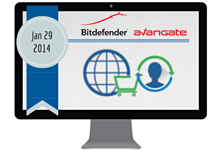Retrieve an order
Overview
Use the getOrder method to retrieve details on a specific order using its unique, system generated reference.
Parameters
|
Parameters |
Type/Description |
|
sessionID |
Required (string) |
|
|
Session identifier, the output of the Login method. Include sessionID into all your requests. 2Checkout throws an exception if the values are incorrect. The sessionID expires in 10 minutes. |
|
orderReference |
Required (string) |
|
|
Order reference number of older order, which is already approved/paid. |
Response
|
Object |
Request
<?php
$host = "https://api.2checkout.com";
$client = new SoapClient($host . "/soap/6.0/?wsdl", array(
'location' => $host . "/soap/6.0/",
"stream_context" => stream_context_create(array(
'ssl' => array(
'verify_peer' => false,
'verify_peer_name' => false
)
))
));
function hmac($key, $data)
{
$b = 64; // byte length for md5
if (strlen($key) > $b) {
$key = pack("H*", md5($key));
}
$key = str_pad($key, $b, chr(0x00));
$ipad = str_pad('', $b, chr(0x36));
$opad = str_pad('', $b, chr(0x5c));
$k_ipad = $key ^ $ipad;
$k_opad = $key ^ $opad;
return md5($k_opad . pack("H*", md5($k_ipad . $data)));
}
$merchantCode = "YOUR_MERCHANT_CODE";// your account's merchant code available in the 'System settings' area of the cPanel: https://secure.2checkout.com/cpanel/account_settings.php
$key = "YOUR_SECRET_KEY";// your account's secret key available in the 'System settings' area of the cPanel: https://secure.2checkout.com/cpanel/account_settings.php
$now = gmdate('Y-m-d H:i:s'); //date_default_timezone_set('UTC')
$string = strlen($merchantCode) . $merchantCode . strlen($now) . $now;
$hash = hmac($key, $string);
try {
$sessionID = $client->login($merchantCode, $now, $hash);
}
catch (SoapFault $e) {
echo "Authentication: " . $e->getMessage();
exit;
}
$orderReference = '43403739';
try {
$fullOrderDetails = $client->getOrder ($sessionID, $orderReference);
}
catch (SoapFault $e) {
echo "fullOrderDetails: " . $e->getMessage();
exit;
}
var_dump("fullOrderDetails", $fullOrderDetails);
?>

